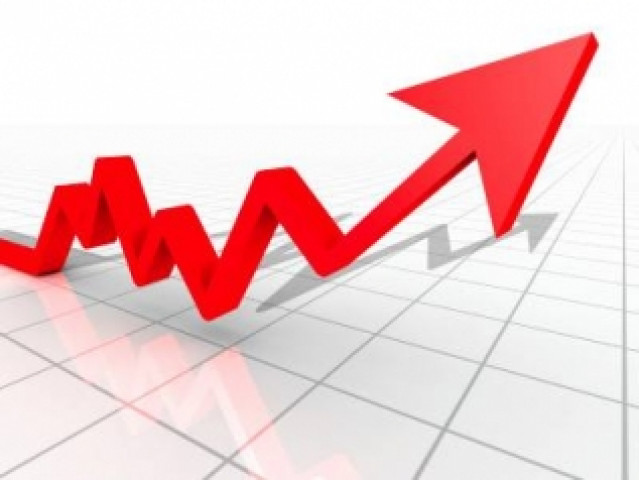SPI rises 0.73% on food, fuel surge
Sugar, milk, beef up but tomato, onion, wheat flour lead YoY price decline

The Sensitive Price Index (SPI) for the week ending July 3, 2025, posted a week-on-week (WoW) increase of 0.73%, driven largely by a surge in food and fuel prices.
However, on a year-on-year (YoY) basis, SPI recorded a decline of 2.06%, reflecting a mixed trend of inflation across essential consumer goods.
According to the Pakistan Bureau of Statistics (PBS) and Arif Habib Limited (AHL), significant weekly increases were observed in the prices of chicken (13.05%), onions (11.62%), tomatoes (11.09%), garlic (5.40%), diesel (3.94%), potatoes (3.58%), petrol (3.22%), and sugar (1.27%). Smaller hikes were also noted in cooked daal, gur, curd, and powdered milk.
Conversely, a decrease was reported in LPG prices (-8.53%), bananas (-3.36%), eggs (-0.59%), mustard oil (-0.37%), pulse moong (-0.30%), and pulse gram (-0.29%). Out of 51 essential items tracked during the week, 18 (35.29%) recorded price increases, 6 (11.77%) declined, while the prices of 27 (52.94%) remained stable.
On a yearly basis, inflation has visibly cooled, with several essential commodities seeing steep price drops. Tomatoes led the decline with a YoY fall of 61.42%, followed by onions (-53.71%), electricity charges for the lowest income quintile (-37.62%), garlic (-24.29%), wheat flour (-23.62%), pulse mash (-20.27%), and Lipton tea (-17.93%). Other notable declines included potatoes, pulse masoor, IRRI-6/9 rice, chilli powder, and bread.
However, YoY prices surged for a few key food and non-food items. Ladies' sandals recorded a sharp increase of 55.62%, sugar rose by 27.78%, pulse moong by 20.59%, powdered milk by 16.01%, and beef by 15.45%. Prices of vegetable ghee, gur, firewood, lawn fabric, cooked daal, and cooked beef also registered double-digit annual increases.
The group-wise SPI breakdown showed that all income groups experienced weekly inflation, with the second quintile (Q2) seeing the highest WoW increase of 0.80%, and the highest income group (Q5) recording a 0.70% increase. YoY inflation was negative across all groups, with the most substantial decline of 3.93% seen in Q2. The combined index stood at 312.06 points, down from 318.61 points a year earlier.
A look at the historical trend of SPI YoY change reveals that since April 2025, prices have generally remained in negative territory. The sharpest YoY deflation was seen in April at -3.66%, followed by a brief recovery in May. The latest YoY figure of -2.06% reinforces the disinflationary pattern, though the recent weekly spike signals continued volatility in perishable food and fuel categories.
Furthermore, the National Consumer Price Index (NCPI) is expected to edge lower to 3.2% YoY in June 2025, supported by a favourable base effect, according to Optimus Capital Management. On a monthly basis, NCPI is projected to inch up by 0.2% MoM, driven primarily by a 0.6% rise in the housing index and a 0.7% increase in the clothing index. In contrast, the food index is anticipated to decline by 0.2% MoM, helping to moderate the overall inflation reading. A correction in gold prices and the supportive base are also likely to bring core inflation down to 7.3% YoY, marking a 0.6 percentage point decline from the previous month.
Electricity prices are expected to rise by 5.7% MoM in June after falling for seven consecutive months. This increase is attributed to a Rs1.22/kWh hike in the Fuel Cost Adjustment (FCA) and its application to previously protected consumer categories. Meanwhile, the food index is expected to remain largely flat on a monthly basis, as sharp weekly increases in perishable items like tomatoes (+59%) and potatoes (+26%) are likely to be offset by a 32% week-on-week drop in chicken prices, according to SPI data.
The recent revision in gas tariffs, including higher fixed charges for domestic users, is estimated to result in a 23% MoM jump in the gas price index, based on the previous methodology used by the PBS, which had earlier drawn criticism. Despite the surge, the impact on YoY NCPI is estimated at 0.71%.















1724319076-0/Untitled-design-(5)1724319076-0-208x130.webp)






COMMENTS
Comments are moderated and generally will be posted if they are on-topic and not abusive.
For more information, please see our Comments FAQ